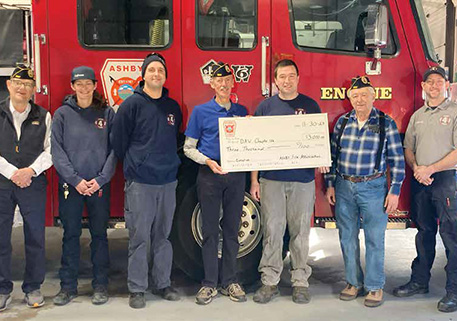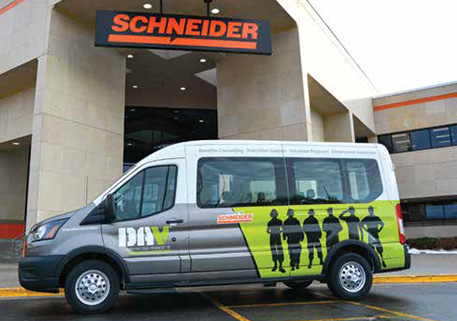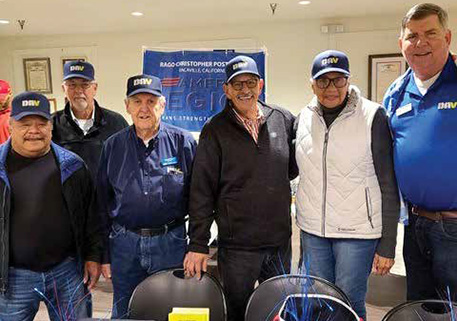In February, DAV’s National Commander Dave Riley presented moving testimony before a joint session of the House and Senate Veterans’ Affairs Committees in Washington, D.C. His testimony hit on all of DAV’s legislative priorities, including comprehensive caregiver benefits, an integrated Department of Veterans Affairs (VA) health care system, women veterans and appeals reform.
As a Coast Guard and Army veteran, Riley spoke from firsthand experience about the importance of essential care for veterans and their families.
“Despite existing problems and the need for reform,” Riley said in his testimony, “I know that the VA is a national treasure and an essential resource that millions of veterans, particularly disabled veterans, choose and rely on.”
Riley contracted septic shock pneumococcus sepsis during service, which resulted in the amputation of all four of his limbs and some internal organs. He told the committee how his experiences affected his life and his appreciation for family caregivers.
“As the realization of what had occurred settled over me, I felt despair at the loss of my limbs. I could not imagine how the rest of my life would have any value or happiness,” Riley testified. “I know that I am not the first person, nor will I be the last, whose life was permanently changed by a traumatic injury or illness incurred in military service; but at the time it was hard to find any perspective or maintain any hope. This pivotal moment is when DAV entered my life.”
Riley’s wife Yvonne’s life was permanently changed as well, as she took on the role of caregiver for her husband. Her actions and selfless sacrifices then and now make her—and all caregivers—what Riley called, “unsung American heroes.”
Riley implored the committee to consider Yvonne and the countless other caregivers of veterans injured before Sept. 11, 2001 who do not receive comprehensive caregiver benefits.
“Another critical DAV priority—and an issue very personal to me—is honoring and supporting caregivers of seriously disabled veterans,” Riley said. “When I was in a coma, all the hard decisions fell to my wife. I can’t imagine the stress Yvonne felt when she was consulted about the need to amputate my arms and legs. The decision was easy enough because there was no other choice if I were to survive.”
“When I needed her most she was there for me. And she has continued to support me through every challenge since. Unfortunately, VA’s caregiver assistance program is limited to veterans injured or made ill after 9/11, leaving untold thousands of family caregivers—like my wife—behind,” he said.
Riley called on Congress to correct the inequity between veterans based on an arbitrary date by extending comprehensive caregiver benefits to all seriously disabled veterans of all eras.
Since Riley’s testimony, two companion bills concerning the expansion of these benefits—S. 591 and H.R. 1472—have been introduced to Congress.






